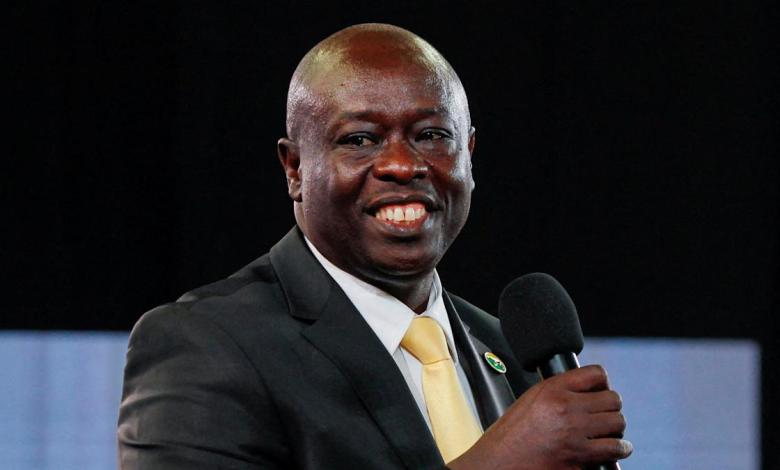Kenyan vice president in hospital ahead of impeachment vote

The Vice President of Kenya, Rigathi Gachagua, failed to appear in the Senate to testify in his impeachment case, his lawyer said he had been ill.
The vice president, who was present in the house in the morning, was supposed to appear at 14:30 local time (11:30 GMT) to answer before the vote on Thursday evening on removing him from office.
“The sad truth is that the vice president of the Republic of Kenya has been ill and is in hospital,” said his lawyer Paul Muite.
The stay is suspended until 17:00.
The Speaker of Parliament, Amason Kingi, said they expect the Vice President to take the witness stand at that time.
“This is a time-limited process, unfortunately,” he said – a hearing that cannot legally be extended beyond Friday.
The Speaker said the case could continue without his presence or “for special reasons that will be recorded to allow the appearance of the vice president” after the process, citing the law of trial procedures.
Two-thirds of the 67 members are needed to remove him from office.
He is facing 11 charges, including corruption, inciting ethnic divisions and undermining the government.
As the trial began on Wednesday, the vice president denied the charges as they were read in the house.
The majority of MPs in the National Assembly last week voted to approve his dismissal, setting the stage for a Senate trial.
He clashed with President William Ruto, two years later they were elected on a joint ticket.
The conflict escalated in June when Gachagua, in an act seen as undermining the president, accused the intelligence chief of not properly informing Ruto and the government of the large number of protests against an unwanted tax hike.
Mr Ruto was recently forced to withdraw taxes and damage his authority. He dissolved his cabinet and brought in opposition members into his government.
Mwengi Mutuse, the lawyer who proposed his proposal, went to the Senate on Wednesday accusing Gachagua of violating the constitution of the state when he conducted the parliamentary debate on a different basis of his proposal.
He described the allegations against the vice president as an “unusual” act that could lead to his being charged. He made an analogy with Gachagua’s speech that the government is like a company with shares, saying that only those who vote for the government will benefit from the development of jobs.
He also accused the vice president of amassing huge wealth through corruption, among other allegations.
The lawyer was then held accountable during cross-examination and at times appeared to have difficulty defending his testimony.
A clip of President Ruto addressing a rally was played in the Senate where he referred to the residents of Murang’a, in central Kenya, as “major shareholders” in the government.
Gachagua’s lawyers asked Mutuse how it was possible for the vice president to be charged with “helping” the president.
The lawyer was also pressed to reveal the basis of the valuation of the wealth that the vice president allegedly received.
He is accused of acquiring assets worth 5.2bn Kenyan shillings ($40m; £31m) in the two years since he became deputy president – allegedly obtained through corrupt means.
He said that many of the areas in question belonged to his late brother.
During the trial, one of Gachagua’s lawyers, Elisha Ongoya, said that all the allegations against the vice president are false, ridiculous or shameful.
Andrew Mulwa, the former CEO of the Kenya Medical Supplies Agency and who was the second witness, faced tough questions about his allegations that he was intimidated by the call of the Vice President to return the documents of the canceled tender for the purchase of mosquito nets held by the president. accused of interfering.
“It was the first time I received a call from the Vice President who was sitting there asking me for documents that are still under investigation. Speaker, in the 15 years I have been working for the public, I have never been asked to do that,” he said.
Gachagua denied the allegations as “ridiculous and baseless”, and his legal team revealed this when the program was completed, saying no money was lost.
The third witness, Abdi Mohamud, the deputy chief executive of the Ethics and Anti-Corruption Commission, testified about the alleged conflict of opinion on this matter and the allegations that the Vice President received gifts of cows from the municipality. the community.
The trial was scheduled to continue as the vice president defended himself throughout the day.
At the end of the process, the senators will debate the proposal and vote.
The vice president is a wealthy businessman from the vote-rich central region of Mount Kenya.
In just five years, he went from being a member of Parliament for the first time to becoming the number 2 in Kenya’s leadership, after Ruto chose him as his running mate in the August 2022 elections.
His impeachment trial has consumed many Kenyans and the media in recent weeks.
Many observers expect his arrest to continue if opposition members support the ruling coalition as they did in the National Assembly.
Gachagua is expected to challenge the decision if it is successful.
Kenyan media are already reporting on his replacement, which is being addressed by governors Irungu Kang’ata and Anne Waiguru (both from central Kenya) and ministers Kithure Kindiki (interior) and Musalia Mudavadi (foreign and chief cabinet secretary).
You may also be interested in:

Go to BBCAfrica.com for more news from the African continent.
Follow us on Twitter @BBCAfricaon Facebook at BBC Africa or on Instagram at bbcafrica
This headline is being reviewed and more information will be published soon. Please refresh the page to get the full version.
You can get Breaking News on your smartphone or tablet with BBC News App. You can also follow @BBCBreaking on Twitter for the latest alerts.




